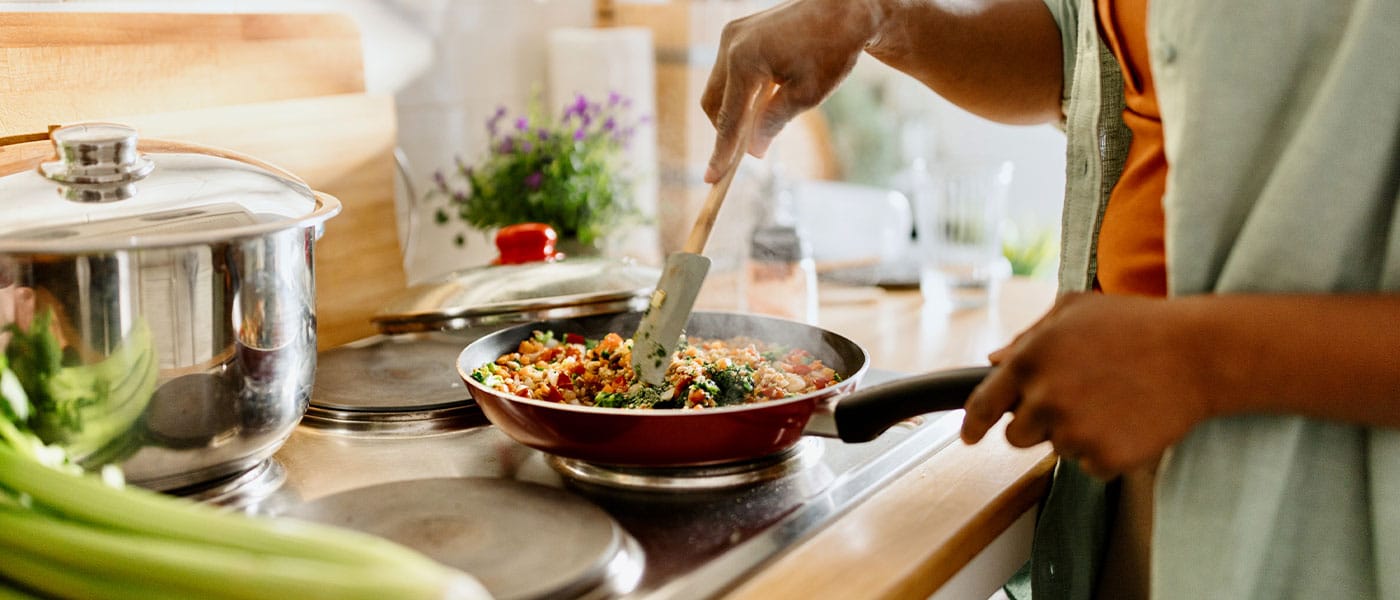
You may have noticed that your energy levels aren’t what they used to be. Fatigue hits earlier in the day, you can’t focus, and workouts leave you feeling drained instead of refreshed. These symptoms, along with slower recovery, brain fog, and reduced stamina, can all be signs that your body’s natural energy production is declining. One key reason? A gradual drop in NAD+ (nicotinamide adenine dinucleotide), a coenzyme essential for converting food into energy.
At Genesis Lifestyle Medicine, we help you restore balance from the inside out. Our NAD+ therapy, available through patches, injections, and nasal sprays, works at the cellular level to help support vitality, metabolism, and mental clarity. But therapy is only one part of the equation: what you eat can play a powerful role in sustaining and enhancing your NAD+ results. Here’s what to include in your diet to keep your energy optimized.
What to eat during NAD+ therapy
1. Turkey
Turkey is more than a holiday staple: it’s one of the best natural sources of tryptophan, an amino acid that your body uses to produce NAD+. It’s also rich in vitamin B3, another NAD precursor. Together, these nutrients support the conversion of food into cellular energy.

A 3-ounce serving of cooked turkey breast offers about 180 mg of tryptophan and 3 mg of niacin, helping your cells produce more NAD+. For the best results, choose lean, skinless turkey and prepare it by baking or grilling rather than frying to retain nutrients.
2. Dairy milk
If your diet allows for dairy, cow’s milk can be an effective way to support NAD+ synthesis. It contains nicotinamide riboside (NR), a compound that your body can readily convert into NAD+. Studies suggest that milk helps preserve the integrity of NR, making it one of the few whole foods naturally rich in this NAD precursor.
Try adding a glass of milk to your breakfast or blending it into smoothies with fruits and leafy greens for a nutrient-packed energy boost. If you prefer alternatives, look for fortified plant-based milks with added B vitamins to mimic this effect.
3. Fatty fish
Fish such as salmon, tuna, and anchovies provide a high-quality source of protein, omega-3 fatty acids, and niacin, all of which play crucial roles in supporting cell function and repair. Niacin (vitamin B3) directly contributes to the formation of NAD+, while omega-3s reduce inflammation that can otherwise impair mitochondrial health.
A serving of salmon or tuna offers around 8 mg of niacin, which can go a long way in supporting your body’s coenzyme production. Aim to include fatty fish two to three times per week to balance NAD+ synthesis with heart-healthy benefits.
4. Beef
Moderate consumption of grass-fed beef can also help maintain NAD+ levels. Beef provides niacin, tryptophan, and essential amino acids needed for muscle recovery and metabolism. Grass-fed varieties tend to be leaner and richer than conventionally raised beef.
However, portion control matters: about 3 to 4 ounces of beef a few times a week can support your nutrient intake without excess saturated fat. Try pairing beef with antioxidant-rich vegetables like spinach or broccoli for an extra mitochondrial boost.
5. Fruits and vegetables
Many plant foods naturally contain nicotinamide mononucleotide (NMN), a direct NAD+ precursor that helps fuel cellular repair. Avocados, broccoli, cucumbers, tomatoes, and edamame are especially rich in NMN. Among these, edamame and avocados have shown some of the highest NMN concentrations in research.

These foods not only promote NAD+ synthesis but also provide fiber, vitamins, and antioxidants that protect cells from oxidative stress. Include at least one NMN-rich fruit or vegetable in every meal to complement your NAD+ therapy.
6. Whole grains
Whole grains such as brown rice, quinoa, and oats are excellent sources of niacin, thiamine, magnesium, and selenium, all of which contribute to metabolic and mitochondrial health. Unlike refined grains, whole grains retain their bran and germ layers, where most B vitamins reside. These nutrients help enzymes that depend on NAD+ function more efficiently.
Start your day with oatmeal, use brown rice as a side dish, or try quinoa salads for a sustained energy source.
Additional dietary tips to optimize NAD+ levels
1. Limit processed sugars and refined carbs
High sugar intake can accelerate NAD+ depletion by increasing oxidative stress and metabolic strain. Refined carbs, such as white bread and sugary snacks, can also interfere with NAD+ use. Instead, focus on whole, unprocessed foods that release energy gradually. This not only supports cellular health but also helps you maintain consistent energy throughout the day.
2. Incorporate intermittent fasting or time-restricted eating
Emerging research suggests that intermittent fasting may naturally stimulate NAD+ production by activating cellular repair processes. Giving your body regular fasting windows, such as 14 to 16 hours overnight, can promote metabolic efficiency and reduce NAD+ consumption during digestion. However, fasting should always be tailored to your individual needs.
3. Stay hydrated with mineral-rich fluids
Hydration is essential for metabolic reactions that depend on NAD+. Without enough water, cellular processes, including those involving NAD+, can slow down. In addition to plain water, consider electrolyte-rich fluids like coconut water or infused water with lemon, cucumber, or mint. These can replenish trace minerals and support optimal enzyme activity.

4. Pair NAD+ therapy with antioxidant-rich foods
Since NAD+ supports mitochondrial repair and energy production, combining therapy with antioxidant-rich foods helps protect these mitochondria from damage. Berries, leafy greens, nuts, and seeds provide compounds like polyphenols and vitamin E that reduce oxidative stress. This balance helps your body retain the benefits of NAD+ therapy for longer periods.
5. Avoid excessive alcohol consumption
Alcohol can significantly deplete NAD+ levels because your body uses large amounts of NAD+ to metabolize ethanol. This can interfere with your NAD+ therapy’s effectiveness and contribute to fatigue or inflammation. If you drink, limit it to one serving or less per day and stay well-hydrated to protect cellular health.
Your journey to better energy, sharper focus, and improved wellness doesn’t end with therapy: it continues at your dining table. By incorporating NAD+-supportive foods like turkey, milk, fish, beef, and NMN-rich fruits and vegetables, you can help your body sustain optimal coenzyme levels and maximize the results of your NAD+ patches, injections, or nasal sprays.
At Genesis Lifestyle Medicine, we believe in whole-body healing. Our team will guide you through wellness strategies, including NAD+ therapy, to help you feel revitalized from the inside out. Reclaim your vitality and let your body thrive, starting with what you eat. Contact us today to get started.



